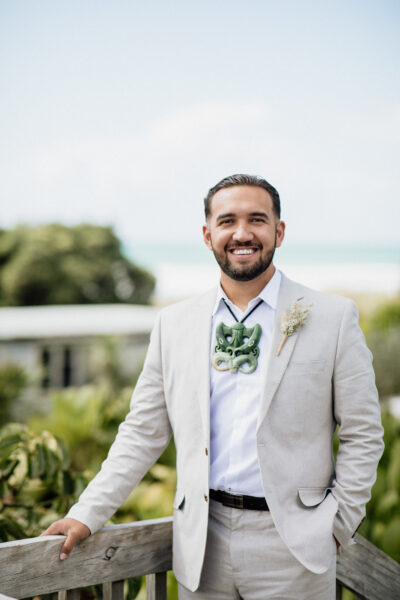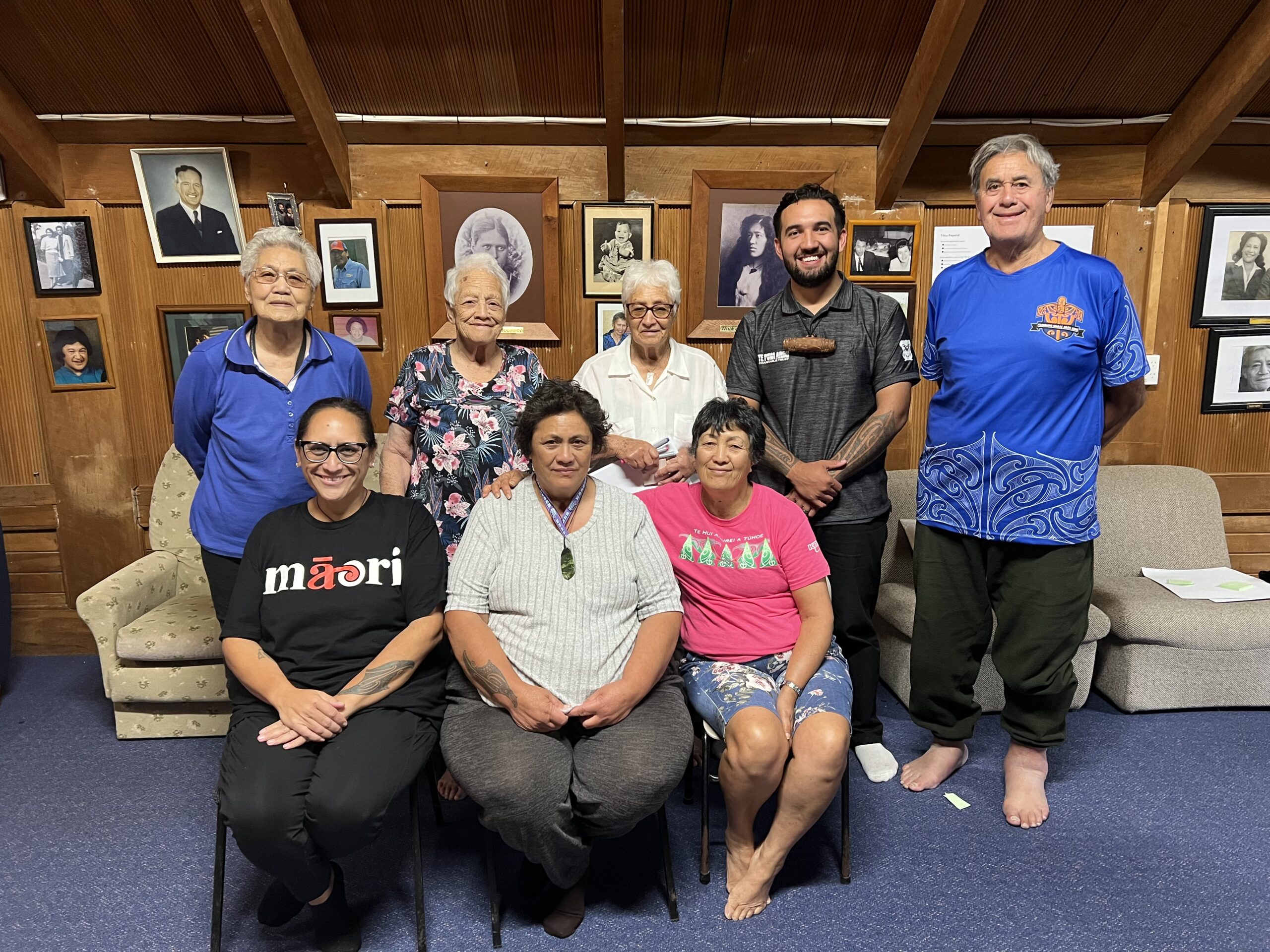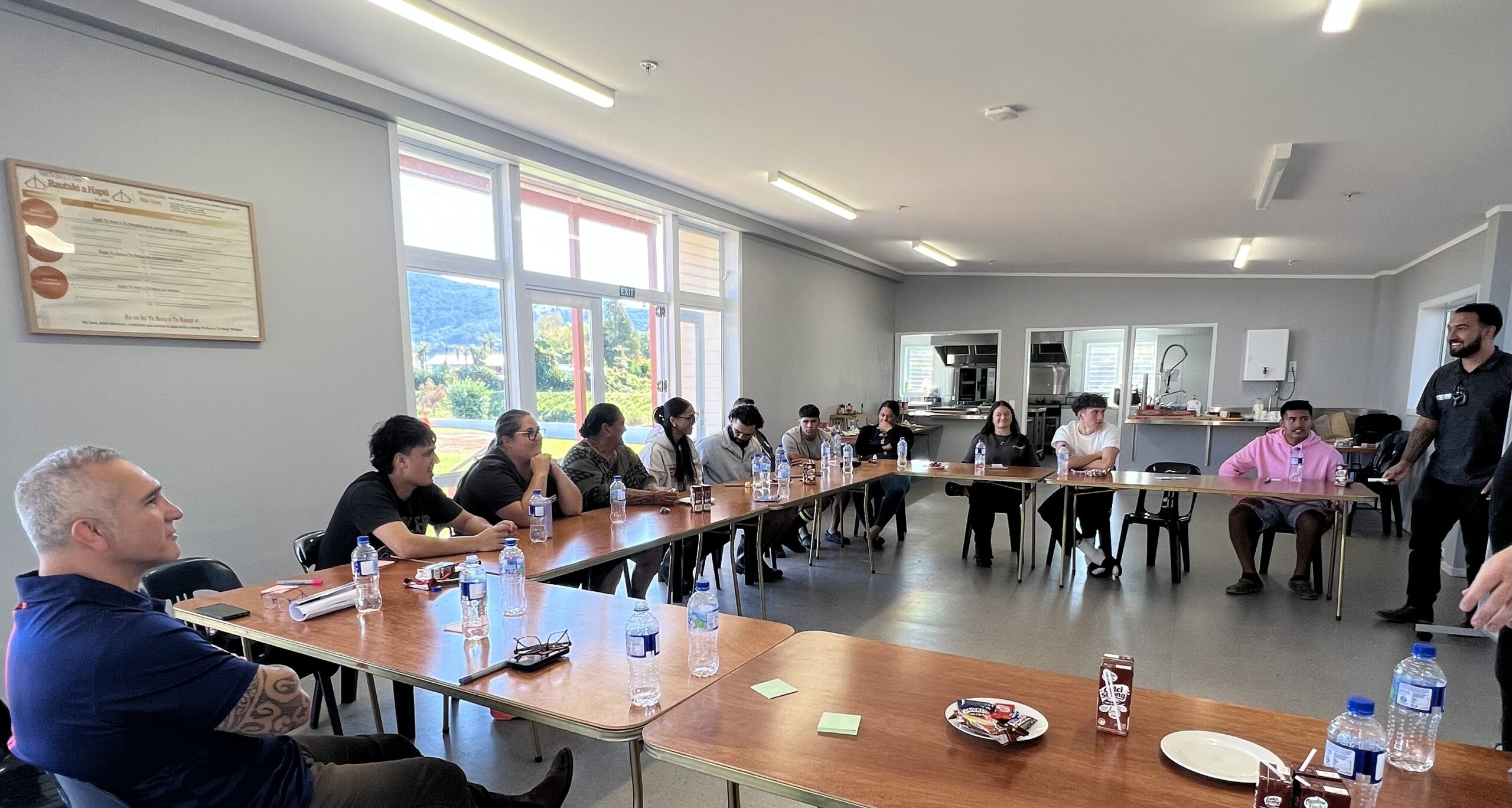Te Rika Liam Tuhoe Haturini Benfell
Ngāti Awa, Ngāti Manawa, Ngāti Whakaue, Tūhoe, Waikato
Pou Herenga Tangata Awardee 2024
Incorporating his Tūhoe whakapapa, Liam seeks to establish a programme to provide upskilling and training to rangatahi regarding processes of Māori land governance and ownership.
 Liam’s moemoeā…
Liam’s moemoeā…
In 1954, Te Urewera, the heartbeat of Tūhoe, was confiscated and transferred to crown ownership. For over half a century, Tūhoe remained landless and were thrust into poverty through no fault of our own. In 2014, our people signed our settlement and te kawa o te Urewera. As a result, our lands were returned to us and the identity of our tipuna ngahere was restored.
The kaupapa/project I am proposing is entitled ‘ko te whenua te toto o te tangata’. The name is derived from the whakatauki “Ko te wai te toto o te whenua, ko te whenua te toto o te tangata”. In essence, this programme looks to create a team of rangatahi and pakeke champions that can assist our kaumatua to navigate complex Māori land processes and achieve their aspirations concerning whenua. The programme will look to provide upskilling and training to rangatahi about navigating the complicated processes of Maori land governance and ownership. In particular, we will look at the Maori land court (succession, trust establishment, renewal of trustees and occupation orders), processes for developing papakainga, how to navigate te tumu Paeroa services, governance and how to best utilise pataka whenua.
For me, the whenua has always been a source of holistic well-being for our people. To ensure that these traditions flourish, I want to ensure that our people have the skills necessary to navigate the system that has been imposed on us.
The path to achieving these aspirations is clear. I would like to partner directly with hapū to tailor the programme and deliver these kaupapa on the marae. The kaupapa will always be community-based. The funding will be allocated towards advertising, securing spaces for the programme (marae hireage), resources for the programme, and recording the outcomes from the programme.
Key outcomes:
- Rangatahi will support their community and kaumatua
- Rangatahi will gain leadership skills to support their hapū
- Rangatahi are more knowledgeable about whenua
Kaupapa update from Liam
What were the major outcomes of this kaupapa?
- Four successful wānanga delivered across different marae.
- Rangatahi gained hands-on leadership experience by supporting their kaumātua in Māori land processes.
- Increased awareness and understanding of Māori land governance, court processes, and papakāinga development.
- Strengthened community connections between rangatahi, pakeke, and kaumātua.
- Established ongoing relationships with hapū to continue this kaupapa beyond the initial funding period.
- 60 participants in total, 40% of which were rangatahi, 20% were pakeke, and 40% were kaumātua.
What were some of the challenges your kaupapa faced during its implementation?
- Securing a Suitable Date for Marae Engagement: Coordinating across multiple marae was a significant challenge, with each having its own calendar of commitments, tikanga-based processes, and priorities. Finding a date that worked for all involved required extensive negotiation, flexibility, and relationship-based planning to ensure maximum participation.
- Technical Issues: While digital tools were intended to streamline aspects of the project, unforeseen technical difficulties arose. These were mitigated by the proactive development of a paper-based alternative, which ensured continuity and inclusivity for all participants particularly those less confident with digital platforms or in areas with unreliable internet access.
- Competing Hāpu Priorities: The timing of the project intersected with other key kaupapa within hapū, including the May wānanga season, which placed additional pressure on whānau time and resources. To address this, the project team maintained open communication and continually reinforced the long-term value of this kaupapa for marae and hapū governance, helping to maintain momentum and support.
- Varying Levels of Readiness Across Marae: Some marae and their representatives were more prepared or resourced to engage with the kaupapa than others. Differences in governance structures, documentation, and digital capability meant the project team had to tailor their support to each context balancing consistency with responsiveness.
How did this kaupapa benefit from the Pou Herenga Tangata Award?
This project would not have been possible without the generous contribution from Tapuwae Roa, whose support was instrumental in bringing the kaupapa to life. Their funding meant that the wānanga were free for our marae and hapū, removing cost as a barrier and ensuring that whānau could participate fully regardless of their circumstances. This greatly increased accessibility and allowed us to uphold the value of manaakitanga throughout the process. We were able to hire marae as venues for our hui, support whānau with transport costs, and ensure our facilitators were properly resourced to deliver high-quality, tikanga-aligned sessions. In addition, we were able to produce tailored information booklets and offer free support sessions, helping whānau feel more confident and prepared to contribute to discussions around governance, whenua, and future planning. Tapuwae Roa’s contribution enabled us to prioritise the needs of our people, without compromise, and deliver a kaupapa that was truly by and for our communities.
What are your future plans for this kaupapa?
I am continuing to support our whānau with their whenua aspirations and have organised to support more whānau moving forward. Through the initial funding from Tapuwae Roa, I have been able to secure further support from Māori Trusts and Iwi to continue this kaupapa.





